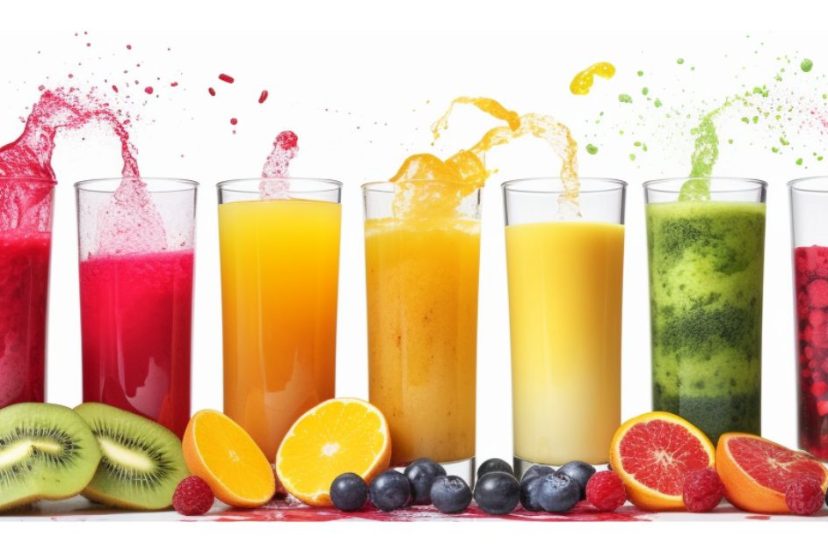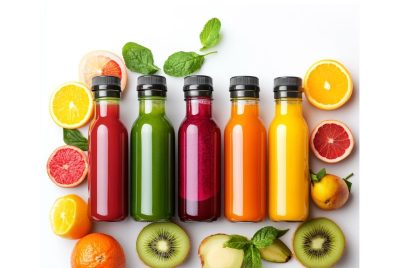What Are Concentrated Juices? – No Vegetable Chasing Required
As a passionate advocate for juicing and its health benefits, I want to share my insights and advice on concentrated juices. Juicing has become a popular trend in the health and wellness community, offering a convenient way to consume essential nutrients.
Concentrated juices, in particular, have gained attention for their longer shelf life and cost-effectiveness. In this article, we will delve into the world of concentrated juices, exploring their definition, pros and cons, nutritional value, health benefits, and important considerations when incorporating them into your diet.
Juicing has emerged as a powerful tool for promoting optimal health and well-being. It involves extracting the juice from fruits and vegetables, providing a concentrated dose of essential vitamins, minerals, and antioxidants. The popularity of juicing stems from its ability to enhance nutrient absorption and promote hydration, making it an excellent addition to a balanced diet.
Understanding Concentrated Juices
Concentrated juices are made by removing the water content from freshly squeezed juice, resulting in a more condensed form of liquid. The process involves evaporating the water, which allows for easier storage and transportation. These juices are often reconstituted by adding water before consumption, restoring the beverage to its original state.
Pros and Cons
Like any other food product, they come with their own set of advantages and disadvantages. Let’s explore them to help you make an informed decision.
Benefits of Concentrated Juices
They offer several benefits that make them an attractive choice for many individuals:
- Extended shelf life: They have a longer shelf life compared to their fresh counterparts, making them convenient for those who want to stock up on nutritious beverages.
- Cost-effective: They tend to be more affordable than freshly squeezed juices, allowing individuals on a budget to still enjoy the benefits of juicing.
- Convenience: The concentrated form of juices makes them easy to store and transport, making them an ideal option for individuals on the go.
Drawbacks
While these juices have their advantages, it’s important to consider the potential drawbacks as well:
- Nutrient loss: The process of concentration can result in some loss of nutrients, particularly heat-sensitive vitamins and antioxidants.
- Added sugars and preservatives: Some of these juices may contain added sugars and preservatives, which can diminish their overall nutritional value.
- Limited variety: They are often limited to popular fruit flavors, reducing the variety of nutrients available compared to fresh juicing.
Nutritional Value of Concentrated Juices
They retain a significant portion of the vitamins and minerals found in their fresh counterparts. However, it’s essential to understand that the concentration process may lead to slight changes in the nutritional content.
Vitamins such as vitamin C, vitamin A, and certain B vitamins are still present, albeit in slightly reduced amounts. Minerals like potassium and magnesium also remain intact, providing essential electrolytes for the body.
Health Benefits of Concentrated Juices
Incorporating these juices into your diet can offer numerous health benefits. Let’s explore how these beverages can positively impact your well-being:
Hydration and Detoxification
They provide an excellent source of hydration, assisting in maintaining optimal bodily functions. Additionally, the high water content aids in flushing out toxins, promoting natural detoxification.
Antioxidant Properties
Fruits and vegetables are rich in antioxidants, which help combat harmful free radicals in the body. Concentrated juices retain a significant amount of antioxidants, supporting cellular health and reducing the risk of chronic diseases.
Boosting Immune System
The vitamins and minerals present in these juices contribute to a stronger immune system. Vitamin C, in particular, plays a vital role in supporting immune function and fighting off infections.
Nutrient Absorption
The concentrated form of juices allows for faster and more efficient nutrient absorption in the body. This can be particularly beneficial for individuals with compromised digestion or those seeking quick nutrient replenishment.
Risks and Considerations
While these juices offer notable benefits, it is essential to be aware of potential risks and considerations.
Added Sugars and Preservatives
Some of these juices may contain added sugars and preservatives to enhance flavor and prolong shelf life. These additives can contribute to increased sugar consumption and may have negative effects on health if consumed excessively.
Potential for Nutrient Imbalance
Relying solely on these juices for nutrition may lead to a nutrient imbalance. It’s crucial to incorporate a variety of fresh fruits and vegetables in your diet to ensure a well-rounded nutrient profile.
Dental Health Concerns
The concentrated sugars in juices can be harmful to dental health if consumed excessively. It’s advisable to consume these juices in moderation and practice good oral hygiene.
Making Informed Choices
To make the most out of these juices and minimize potential risks, consider the following tips:
Reading Labels and Ingredient Lists
When purchasing concentrated juices, read the labels and ingredient lists carefully. Opt for products that contain minimal additives and no added sugars.
Choosing Quality Brands
Select reputable brands known for their commitment to quality and transparency. Look for organic options whenever possible to reduce exposure to pesticides and other harmful substances.
Balancing Concentrated Juices with Fresh Options
While these juices offer convenience, it’s crucial to maintain a balanced diet that includes a variety of fresh fruits and vegetables. Consider using them as a supplement rather than a replacement for whole foods.
Conclusion
These juices provide a convenient and cost-effective way to enjoy the benefits of juicing. While they offer advantages such as extended shelf life and convenience, it’s essential to be mindful of potential drawbacks such as nutrient loss and added sugars. By making informed choices, balancing concentrated juices with fresh options, and prioritizing quality and variety, you can incorporate these beverages into your diet in a way that supports your overall health and well-being.
FAQs
1. Are concentrated juices as nutritious as fresh juices?
They retain a significant portion of the nutrients found in fresh juices. However, the concentration process may result in slight nutrient loss, particularly heat-sensitive vitamins and antioxidants.
2. Can these juices help with weight loss?
When consumed as part of a balanced diet, can contribute to weight loss due to their hydrating and low-calorie nature. However, it’s important to consider the overall calorie intake and avoid excessive consumption of added sugars.
3. Are concentrated juices suitable for children?
While concentrated juices can be a part of a child’s diet, it’s important to moderate their consumption due to the concentrated sugars and potential dental health concerns. Fresh fruits and vegetables should remain a priority in a child’s diet.
4. Can I substitute concentrated juices for fresh fruits and vegetables?
While concentrated juices offer convenience, they should not be considered a complete substitute for fresh fruits and vegetables. Whole foods provide essential dietary fiber and a wider range of nutrients that may not be fully present in concentrated juices.
5. How should I store concentrated juices?
Follow the storage instructions provided by the manufacturer. Most concentrated juices require refrigeration after reconstitution. Ensure the product is sealed tightly and stored at the recommended temperature to maintain its freshness and quality.
Meta
Discover the benefits and drawbacks of concentrated juices. Learn how they compare to fresh juices and make informed choices for your health. What are concentrated juices? Find out now.




